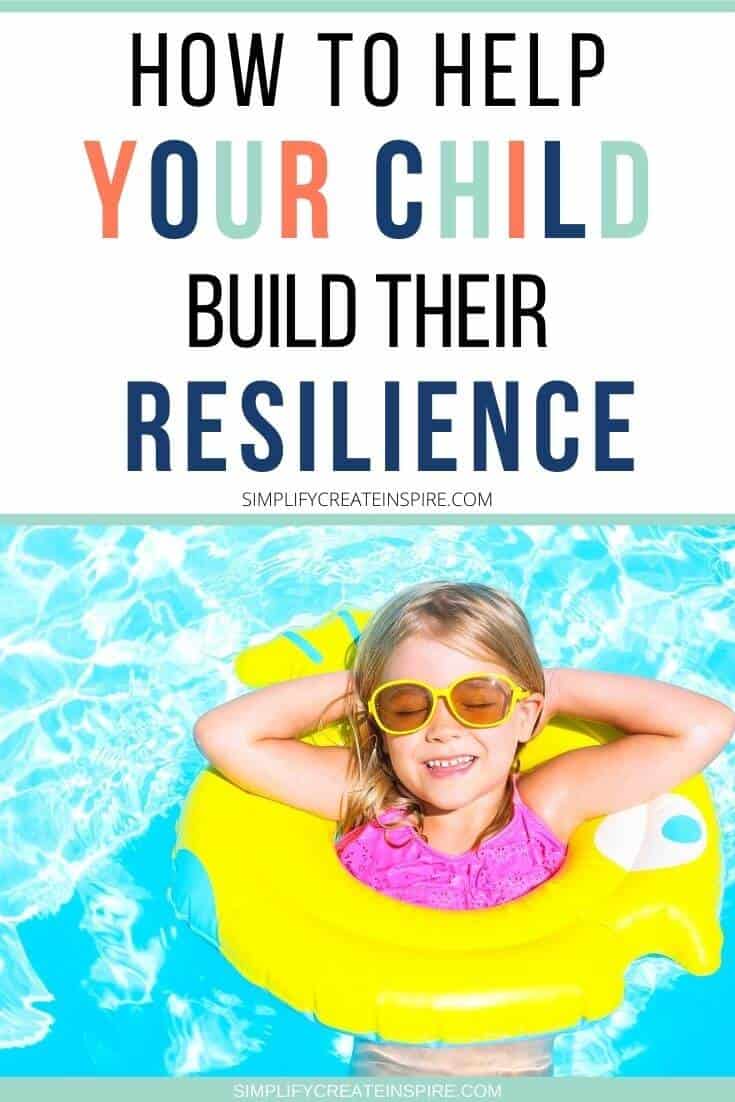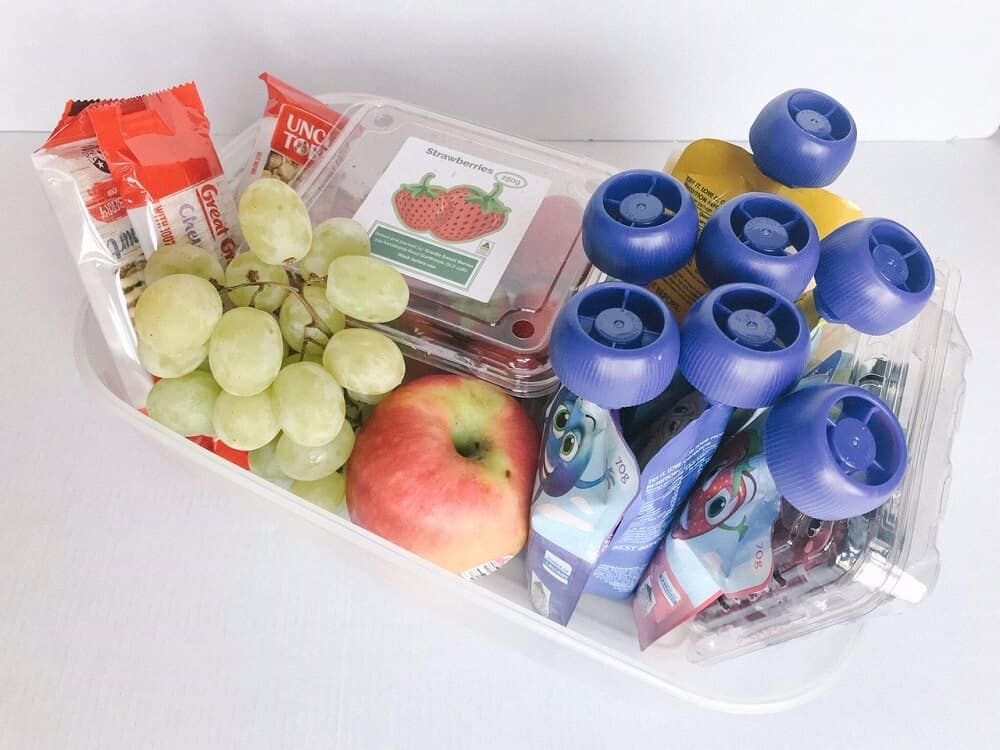Building Resilience In Kids: Strategies To Support Their Growth
This post may contain affiliate links. Read the full disclosure
Building resilience in kids helps them to navigate through the everyday ups and downs. It also helps them to cope with significant challenges, loss and difficult experiences.
Helping your child to become more resilient will support them through these struggles during childhood, as well as setting them up with resilience skills into adulthood
Children with higher resilience will experience less stress from everyday expectations, helping them to grow up with a healthy wellbeing, better able to handle future challenges. Resilient children are also typically more confident children, with better conflict management and problem-solving skills.

Why Is Resilience Important For Children?
Being an adult comes with a lot of responsibilities, but that does not mean that childhood is easy.
Children change neighbourhoods and start new schools. They learn new information and take school assessments. They get braces and get sick. Kids lose loved ones or favourite toys. They make friends and get hurt by those friends on occasion. They encounter bullies and physical health concerns.
And so the list goes on!
Just like us adults, our kids are battling through their own challenges and setbacks throughout childhood. Many of which we don’t even know about.
What helps a child overcome all these challenges is resilience.
A resilient child faces a tough situation and is able to find a good solution or simply brush themselves off and move on with their day.
What Is Resilience?
The Cambridge Dictionary defines resilience as the ability to be happy or successful again after something difficult or bad has happened. It is the ability to return quickly to a previous state or condition following problems.
They also mention coping capacity, which is a perfect definition of resilience.
An individual’s capacity to handle challenges and utilise coping skills with something difficult and move on.
In simple terms, it’s a child’s ability to move through a difficult scenario quickly, with minimal or no required assistance – their mental flexibility!

Strategies For Building Resilience In Kids
A child being resilient isn’t something they are born with. But the good news is that you can teach resilience.
While resilience activities for kids will help kids build resilience, it will take time before these essential skills become habits. Incorporate these habits into your everyday life to help build your child’s resilience skills.
Read on below for tips on raising resilient children:
Tools For Managing Emotions
Without the right tools, emotional regulation is difficult for children. This is where meltdowns, tantrums and shutting down become the only known strategies for dealing with a stressful times.
As kids get older, we can support their emotional regulation and mental health by teaching them coping strategies for managing their emotions.
Model resilience and effective ways that you manage your own emotions when you become frustrated or upset.
Talk to your child calmly and help them regain control through methods that soothe them. Encourage deep breathing, re-frame the situation or distract them from the cause of their distress.
As your child gets older, they will hopefully learn how to utilise these strategies on their own without needing your help to do so.
But don’t forget, tears are okay sometimes. No matter your age!
Resilient Role Models
Just as a heroic character on television can inspire greatness, books can do the same. Children’s stories are a wonderful way to share stories of resilience and overcoming stressful situations in a way kids can understand.
These stories can also help kids feel empowered to utilise their own strengths.
These children’s picture books about resilience are great options to add to your home library:
Let Them Want For Things
While we want our kids to grow up with everything they want in life, it’s helpful not to give them everything.
By letting your child want for some things, they learn the value of the things they do receive. This teaches them to be grateful and appreciative. It also teaches them to take pride in the things they do own.
Encourage your child to give away their old clothes and toys to charity. This will teach them that material possessions are simply that, material, and they’re not the answer to happiness.
On top of this, you can teach your child to set goals, such as saving their pocket money for a big toy they really want, instead of expecting it to be given to them.
Learning to wait will also help with their impulse control in future and encourage them to think about their actions first.

Teach Patience
Just as not giving in to all your child’s wishes can help develop resilience, teaching them patience in other ways is also effective.
Allow your child to wait when needed, such as during a car ride or waiting for a meal in a restaurant.
Don’t always give them something to keep them entertained as patience is an important skill for a resilient child.
Start small, for your own sanity if you have a child that is prone to meltdowns when they are bored. Start by having them wait 5 minutes then push it out to 10 and so on until your child learns that some situations simply require them to wait.
If you’re faced with lining up for a period, try one of these waiting in line activities as a way to show your child that sometimes they can make their own fun instead of relying on toys or technology to entertain them while bored.
Allow Them To Fail
Children need to find their own way and learn independence. This comes will a little trial and error. And this can be hard for a parent, knowing our child may fail.
It is okay to allow your child to fail so long as it is in a situation where they feel safe and have a supportive relationship to get them through their tough times.
Failing leads to learning!
And encouraging them to try again can build resilience in kids.
Teach your child that even if it takes them longer to complete, or takes multiple attempts, they should always try their best and if they want something enough, they should keep trying.
Praise their efforts of trying again and let them know you are proud of their efforts because they tried their best.
Practice Problem-Solving
Give your child the opportunity to figure things out on their own, instead of running to help them as soon as they struggle.
Just like allowing your child to fail, giving them problem solving opportunities is so important for teaching resilience to children.
Having good problem-solving skills as a child will help them make good choices as an adult. It will also teach them to be persistent in finding alternative solutions if something is not going as planned.
Conversation starters for families can be helpful to get kids talking. Try these conversation starters for kids, teens, and couples, conversation starters for family dinner & Would You Rather questions for kids to get everyone talking!
Kindness Is Key
Encourage sharing and kindness in all interactions. A resilient child is more likely to walk away from a negative interaction.
Kindness is one of the biggest rules in our home, especially with two little girls who are prone to jealousy. If the green-eyed monster flares up in our family, we remind them “Are you being kind right now?”. This is usually enough to stop the negative actions before they get out of hand.
Allow your child to gain experience about their reality by encouraging them to volunteer and do charity work. This way they will realise that there are people who have very different circumstances in life.
Knowing not everyone has what they have can help remind them to maintain a kind attitude towards others.

Exploration Leads To Learning
Encourage your child to be independent and try new things. Sometimes these things can be really simple, like opening a container for themselves without offering to help or climbing a new rope course at the playground.
A passion for learning leads to new discoveries, about the world around them and of their own abilities.
Your child will come to rely on you less as they develop the courage to try things for themselves more often.
Encourage your child to step out of their comfort zone by giving them the opportunity to try new cultures and foods, play with children that speak foreign languages, and experience new places.
As an added bonus, fostering a lifestyle of discovery leads to a more curious child. Curiosity can help your child to embrace diversity and acceptance of others.
Encourage Extracurricular Activities
Participating in new activities is an effective way to build character and help kids to feel comfortable in new situations.
Whether it be a new sport or social hobby, this gives your child the chance to learn from other adults in multiple contexts and to rely less on your presence. These scenarios encourage the development of new friendships and finding new coping strategies to allow them to feel safe in unfamiliar situations.
Over time, your child will become more comfortable in their extracurricular environment and hopefully begin pushing their own personal limits as they gain new skills.
Young people in team sports and other extracurricular activities are shown to have higher self esteem and are better at solving problems.
Our girls both attend Brazillian Jiu Jitsu twice a week. This is a time commitment but it has also pushed them far outside of their comfort zones and encouraged them to try many things they previously did not think themselves capable of.
Lead By Example
Parents are most child’s biggest role models. What they see you do sets an example for their own lives.
Show them your own resilience by sharing your own hardships with them, where appropriate, and how you manage stress.
This can be as simple as telling them that your favourite mug broke and while you are sad about this, you can now find a new favourite. This scenario may not seem like a teachable moment, however, seeing you react calmly when bad things happen teaches them that not a huge emotional reaction is unnecessary.
Open communication is essential in raising resilient kids, so they can understand the way you process your personal challenges and difficult situations.
Encourage A Healthy Lifestyle
If your kids see you focused on healthy living and taking care of your physical health and mental health, they are more likely to do the same. Encourage a love of individual characteristics and differences.
Showing body confidence and positive weight attitudes will also help your child to develop their own high self esteem and build confidence through observation.
While as parents we don’t always get this right, no matter your parenting style, your best efforts are helpful!
Give Them Responsibility
Teach your child to be responsible for their own belongings as a starting point. If they can’t find something, encourage them to seek it themselves, rather than you taking over the search straight away.
If something is lost, use it as a teachable moment to take better care of belongings in future, only replacing the lost item if essential.
Use age-appropriate chores at home to give your children responsibilities to help to maintain a tidy home.
If you have pets, have your child assist with caring for the pets by helping to feed them or walk them.

Stick To Limits & Expectations
Even when your child doesn’t feel like it, make it a requirement for them to complete their responsibilities – such as taking a bath, brushing their teeth, making their bed, feeding the pets, taking the dog for a walk, or cleaning their room.
As adults, we can’t simply stop doing the things we need to do, like going to work, or cleaning the house. Well, maybe sometimes, but we know it can’t be avoided for long.
In the same manner, when you have a limit set, don’t give in. If your child can only have a certain amount of TV time, or a certain amount of sweets, stick to it.
We do 2 tech-free days a week in our home as a way of teaching limits. This has had a very positive outcome for our household, in the same way as sticking to daily habits works also.
Maintain A Positive Attitude
A positive mindset helps kids to see the good in a situation, even if this is in hindsight and not in the moment.
Resilient kids seek good things to help them work through the hard things. They can also use their positive attitude to make the things they don’t enjoy a little easier.
Why not turn cleaning into fun with a cleaning game? Or eat the green beans first because they like them the least and can eat their favourite part of dinner last.
Seeking fun and joy in their daily life is something we should all strive for! Encourage your child to be grateful for what they have and how they can make the best out of the situation they are in. We won’t always have positive outcomes, and that’s okay.
A gratitude journal is another wonderful way to encourage a positive mindset and help kids to let out their big feelings onto paper. Many gratitude journals also include growth mindset and resilience activities as well. Check out these incredible journals for kids and teens as well as these gratitude picture books.
Experiencing tough times, emotional pain and stress through childhood and the teen years are all part of the healthy development of every child. There is no possible way to prevent adversity in every situation, therefor kids need to leave how to solve problems, manage stress and navigate tough times through early childhood and beyond.
Building resilience in children takes time and patience. These steps will help support your child to grow their confidence and manage stressful situations easier. Parenting is no walk in the park, just as learning to manage emotions as a child is not easy.
Find activities to do at home with kids plus over 100 fun ideas for the backyard too!
You may also like these parenting articles:
- How to raise confident daughters
- Tips for preparing a child for starting school
- SMART Goal Setting for kids
- How to connect with your child
- How to motivate your child to read
- Ideas for teenagers to make money
What if your child is currently experiencing significant stress or grief in their life and nothing you do seems to be helping?
As a registered psychologist in Australia, there have been many times when I have worked with children who are struggling with something beyond a lack of resilience, and in these situations, I recommend you seek professional support. Organisations such as Beyond Blue can assist you.









